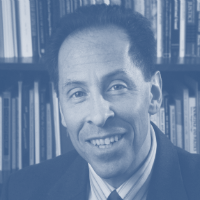In the thirteen years between the Declaration of Independence in 1776 and the adoption of the Constitution in 1789, the United States was governed primarily by thirteen separate entities. Although the form of each government differed, most tended to elevate the legislature above the executive and judiciary, and made the legislature as responsive to majoritarian sentiments as possible.
State legislatures began enacting laws to relieve debtors (who were numerous) of their debts, which undermined the rights of creditors (who were few) and the credit market. States also erected an assortment of trade barriers to protect their own businesses from competing firms in neighboring states. And, because state legislatures controlled their own commerce, the federal Congress was unable to enter into credible trade agreements with foreign powers to open markets for American goods, in part, by threatening to restrict foreign access to the American market.
The result of all this was a nationwide economic downturn that, rightly or not, was blamed on ruinous policies enacted by democratically-elected legislatures. In 1787, political dissatisfaction with the economic situation led to a convention convened in Philadelphia to remedy this state of affairs. The new Constitution it proposed, addressed debtor relief laws with the Contracts Clause of Article I, Section 10, which barred states from "impairing the obligation of contracts."
To address the problems of interstate trade barriers and the ability to enter into trade agreements, it included the Commerce Clause, which grants Congress the power "to regulate Commerce with foreign Nations, and among the several States, and with the Indian Tribes." Moving the power to regulate interstate commerce to Congress would enable the creation of a free trade zone among the several states; removing the power to regulate international trade from the states would enable the president to negotiate, and Congress to approve, treaties to open foreign markets to American-made goods. The international commerce power also gave Congress the power to abolish the slave trade with other nations, which it did effective on January 1, 1808, the very earliest date allowed by the Constitution.
But, in the words of Chief Justice John Marshall, the "enumeration" of three distinct commerce powers in the Commerce Clause "presupposes something not enumerated, and that something, if we regard the language or the subject of the sentence, must be the exclusively internal commerce of a State." Gibbons v. Ogden (1824) (Marshall, C.J.). So, for example, even when combined with the Necessary and Proper Clause giving Congress power to make all laws which shall be necessary and proper for carrying into execution its enumerated powers, the Commerce Clause did not give Congress power to touch slavery that was allowed by state governments within their borders.
The text of the Commerce Clause raises at least three questions of interpretation: What is the meaning of "commerce"? What is the meaning of "among the several states"? And what is the meaning of "to regulate"? Some have claimed that each of these terms of the Commerce Power had, at the time of the founding, an expansive meaning in common discourse, while others claim the meaning was more limited.
- "Commerce" might be limited to the trade, exchange or transportation of people and things, which would exclude, for example, agriculture, manufacturing, and other methods of production; or it might expansively be interpreted to refer to any gainful activity or even to all social interaction.
- "To regulate" might be limited to "make regular," which would subject a particular type of commerce to a rule and would exclude, for example, any prohibition on trade as an end in itself; or it might expansively be interpreted to mean "to govern," which would include prohibitions as well as pure regulations.
- "[A]mong the several States" might be limited to commerce that takes place between the states (or between people of different states), as opposed to commerce that occurs between persons of the same state; or it might expansively be interpreted to refer to commerce "among the people of the several States," whether such commerce occurs between people in the same state or in different states.
In addition to other pervasive evidence of the public meaning of these terms, the slavery issue helps clarify the original public meaning of these terms at the time of their enactment. "Commerce" meant the activity of selling, trading, exchanging, and transporting goods and people, as distinct from producing the things being moved. "To regulate" meant to make regular, but at least with respect to the international trade, it also included the power to ban the trade in some items, as Congress banned the slave trade. Among the several states meant between one state and others, not within a state, where slavery existed as an economic activity.
From the founding until today, the meaning of "commerce" has not been much changed. Perhaps its only expansion by the Supreme Court came in 1944 when the Court held that commerce included "a business such as insurance," which for a hundred years had been held to be solely a subject of internal state regulation. United States v. South-Eastern Underwriters (1944). Instead, the modern growth of Congress's regulatory powers has been allowed by the courts adopting an expansive reading of the Necessary and Proper Clause to give Congress power over a broad range of intrastate economic activities with a "substantial effect" on interstate commerce, when such regulation is essential to the regulation of interstate commerce (narrowly defined).
As the New Deal Court said in United States v. Darby (1941), the "power of Congress over interstate commerce is not confined to the regulation of commerce among the states." The Court explained that "while manufacture is not of itself interstate commerce, the shipment of manufactured goods interstate is such commerce and the prohibition of such shipment by Congress is indubitably a regulation of the commerce." The power also "extends to those activities intrastate which so affect interstate commerce or the exercise of the power of Congress over it as to make regulation of them appropriate means to the attainment of a legitimate end, the exercise of the granted power of Congress to regulate interstate commerce." As authority for this principle, the Court relied on the Necessary and Proper Clause case of McCulloch v. Maryland (1819).
But in McCulloch, Chief Justice Marshall insisted that "should Congress, under the pretext of executing its powers, pass laws for the accomplishment of objects not entrusted to the government; it would become the painful duty of this tribunal . . . to say that such an act was not the law of the land." In Darby, however, Justice Stone wrote: "Whatever their motive and purpose, regulations of commerce which do not infringe some constitutional prohibition are within the plenary power conferred on Congress by the Commerce Clause." In this way, Stone ruled out Marshall's inquiry into whether Congress was relying on the commerce clause power as pretext for passing laws that aimed to accomplish goals beyond the power of the federal government. Thus, the Court expanded Congress power over interstate commerce in a way that gave it power over the national economy.
In the 1990s, the Rehnquist Court treated these New Deal cases as the high water mark of congressional power. In the cases of U.S. v. Lopez (1995) and U.S. v. Morrison (2000), the Court confined this regulatory authority to intrastate economic activity. In addition, in a concurring opinion in Gonzales v. Raich (2005), Justice Scalia maintained that, under Lopez, "Congress may regulate even noneconomic local activity if that regulation is a necessary part of a more general regulation of interstate commerce."
Most recently, in the health care case of NFIB v. Sebelius, in 2012, a majority of the justices found that a mandate to compel a person to engage in the economic activity of buying health insurance was beyond the powers of Congress under both the Commerce and Necessary and Proper Clauses. "The individual mandate cannot be upheld as an exercise of Congress' power under the Commerce Clause," Chief Justice Roberts wrote. "That Clause authorizes Congress to regulate interstate commerce, not to order individuals to engage in it." Moreover, "[e]ven if the individual mandate is 'necessary' to the Act's insurance reforms, such an expansion of federal power is not a 'proper' means for making those reforms effective." Instead, Chief Justice Roberts provided the fifth vote to uphold the Affordable Care Act by adopting a "saving construction" that the penalty enforcing the insurance requirement was noncoercive enough to be considered a tax rather than a Commerce Clause regulation.
The dispute over the breadth of the meaning of "commerce" turns, in large part, on the purposes one attributes to the clause, and to the Constitution as a whole, and what one thinks is the relevance of such purposes to the meaning of the text. At Philadelphia in 1787, the Convention resolved that Congress could "legislate in all cases . . . to which the States are separately incompetent, or in which the harmony of the United States may be interrupted by the exercise of individual legislation." 2 Records of Fed. Convention 21 (Max Farrand ed., 1911); see also 1 Records of Fed. Convention 21 (Resolution VI of the Virginia Plan). This was then translated by the Committee of Detail into the present enumeration of powers in Article I, Section 8, which was accepted as a functional equivalent by the Convention without much discussion. Proponents of an expansive reading claim that the power to regulate commerce should extend to any problem the states cannot separately solve. Those who support a narrower reading observe that the Constitution aims to constrain, as well as to empower, Congress, and the broadest reading of the Commerce power extends well beyond anything the framers imagined. As the dissenters in the health care case observed, "Article I contains no whatever-it-takes-to-solve-a-national-problem power."
Further Reading:
For contrasting views of evidence on the original public meaning of the terms in the Commerce Clause, compare Randy E. Barnett, The Original Meaning of the Commerce Clause, 68 U. Chi. L. Rev. 101 (2001), and Randy E. Barnett, New Evidence of the Original Meaning of the Commerce Clause, 55 U. Ark. L. Rev. 847 (2003), with Jack M. Balkin, Living Originalism 138-82 (2011); Randy E. Barnett, Jack Balkin's Interaction Theory of Commerce, 2012 U. Ill. L. Rev. 623.






